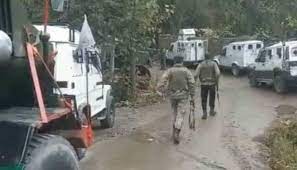NGT asks about the state of rainwater collection
New Delhi: The National Green Tribunal (NGT) has ordered the relevant authorities to provide information on the city’s rainwater harvesting systems, including the names of the people tasked with keeping them in good working order.

The NGT urged the agencies to reveal the number of rainwater harvesting systems (RWHS) installed close to stormwater drains, while also criticizing them for failing to comply with the tribunal’s 2019 judgment on RWHS.
Lack of quorum causes the Bihar RERA Appellate Tribunal to function poorly and raises questions about “illegal” appointments.
Departments had built RWHS and linked them to stormwater drains, which contained sewage and wastewater, contaminating groundwater, according to an execution application submitted to the tribunal last year.
The Central Ground Water Authority, Municipal Corporation of Delhi, Delhi Pollution Control Committee, and Delhi Development Authority had all submitted new reports, but the NGT noted on April 24 that these “do not reflect disclosure of any material and relevant information.”
The tribunal ordered all involved agencies to provide a statement detailing the number of RWHS that have been installed, as well as the location and phone number of the person in charge of maintaining them.
In order to monitor groundwater level, it also requested information from the agencies on the number of buildings built close to stormwater drains, the condition and quantity of piezometers (which measure water level) placed next to RWHS, and the count of RWHS that are defective. The agencies have been requested to notify the tribunal whether the RWHS that have been constructed are fulfilling the recommendations of the committee that the NGT previously established.
The bench led by Justice Prakash Shrivastava said, “Fresh reports must be filed within a period of three weeks by all the concerned respondents, failing which the tribunal may not have any option but to direct the personal appearance of these authorities.”
Rainwater harvesting from contaminated or polluted water must end, according to recommendations made in 2019 by an expert committee appointed by the NGT and made up of representatives from the Central Ground Water Board (CGWB), the DPCC, and the CPCB. The committee also recommended against installing RWHS in stormwater drains that contain contaminants. To avoid being recharged by tainted water, the organizations who possess RWHS should maintain them appropriately. In order to separate pollutants before replenishing the RWHS with contaminated water, such as surface runoff, appropriate separators should be constructed.







